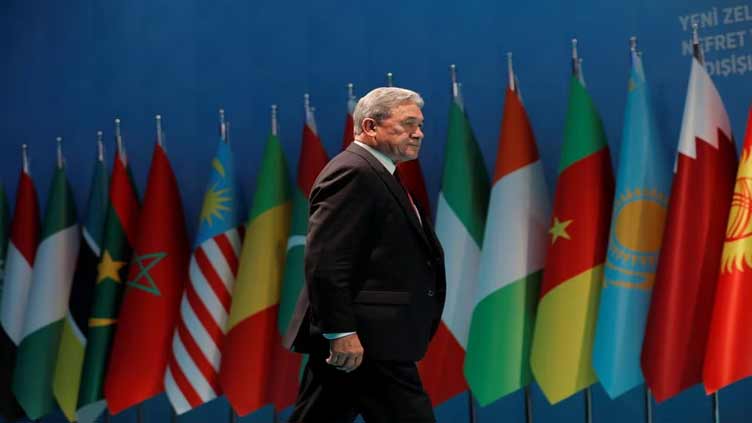New Zealand's new govt targets RBNZ mandate, Indigenous policies and tax

World
The coaliation agreement outlines plans to roll back the use of Maori language
WELLINGTON (Reuters) - New Zealand's National Party sealed agreement on a new three-party coalition government on Friday, after drawn-out negotiations over ministerial roles and policies including Indigenous rights, tax cuts and changes at the central bank.
The centre-right Nationals, led by incoming Prime Minister Christopher Luxon, return to power alongside the populist New Zealand First party and libertarian ACT New Zealand after six years of rule by governments led by the left-leaning Labour Party.
"We believe in this country, we are ambitious for it and we know that with the right leadership, the right policies, and the right direction, together we New Zealanders can make this an even better country," Luxon said in a speech ahead of the formal signing of the agreement at parliament.
The coaliation agreement outlines plans to roll back the use of Maori language, review affirmative action policies and assess how the country's founding treaty document is interpreted in legislation. However, a controversial proposal to have a referendum on the interpretation of the document, the Treaty of Waitangi, will not happen.
New Zealand's outgoing Labour Prime Minister Chris Hipkins said the changes in policy were going to turn back progress on Maori issues.
"This is certainly going backwards by three or four decades," he said.
Luxon, 53, said the government will also amend the Reserve Bank of New Zealand Act 2021 to remove the dual mandate on inflation and employment, to focus monetary policy only on price stability.
ANZ economists said in a note that proposed changes to the monetary policy framework "may be seen as hawkish" at the margins, but other announcements do not appear to be game changers for macroeconomic policy settings.
There are also plans to repeal a ban on offshore oil and gas exploration and a ban on the sale of cigarettes to future generations introduced by the previous Labour government, according to coalition documents.
The new government will cut personal income taxes, following through on a campaign policy used to woo middle income voters struggling with rising costs of living.
However, plans to open up New Zealand's housing market to foreign buyers and tax these purchases to pay for the tax cuts have been shelved.
“Delivering tax relief is just one part of the Government’s plan to rebuild the economy. The Government will ease the cost of living, reduce wasteful spending, and lift economic growth to increase opportunities and prosperity for all New Zealanders,” Luxon said.
The parties said they plan to "re-write the Arms Act" without giving any further details, and would undertake a review of the gun registry that was introduced after a gunman killed 51 Muslim worshippers in 2019. It also agreed to train no fewer than 500 new Police.
MIXED BAG
Parties on the political right gained popularity over the last year frustration with the ruling Labour Party grew. Charismatic former premier Jacinda Ardern became a favourite in progressive politics globally, but domestically, anger had built against strict COVID restrictions and rising living costs. Ardern stepped down in January.
Luxon, the former CEO of the national airline, only entered parliament in 2020 and became leader of the National Party at the end of 2021.
The new coalition cabinet, which will be sworn in on Monday, is a combination of veteran politicians and new leaders.
The role of deputy prime minister, a key sticking point in coalition negotiations, will be split between NZ First leader Winston Peters and ACT leader David Seymour.
National Party deputy leader Nicola Willis will be finance minister and Peters will be foreign minister, the parties said.
Peters - a colourful, populist figure in his late seventies – will be taking over as foreign minister for a third time after serving in the role in Ardern's 2017 Labour-led government and with Labour Prime Minister Helen Clark in 2005.
"Foreign affairs does matter to this country.... all relationships do matter to this country," Peters said in a joint news conference in the capital Wellington after the announcement.
"We expect the Chinese government to treat us the same way, regardless of our size," he said when asked how he plans to deal with China's growing influence in the region. "Size doesn't matter respect does."


